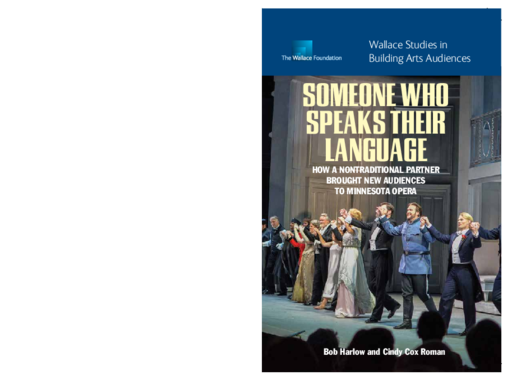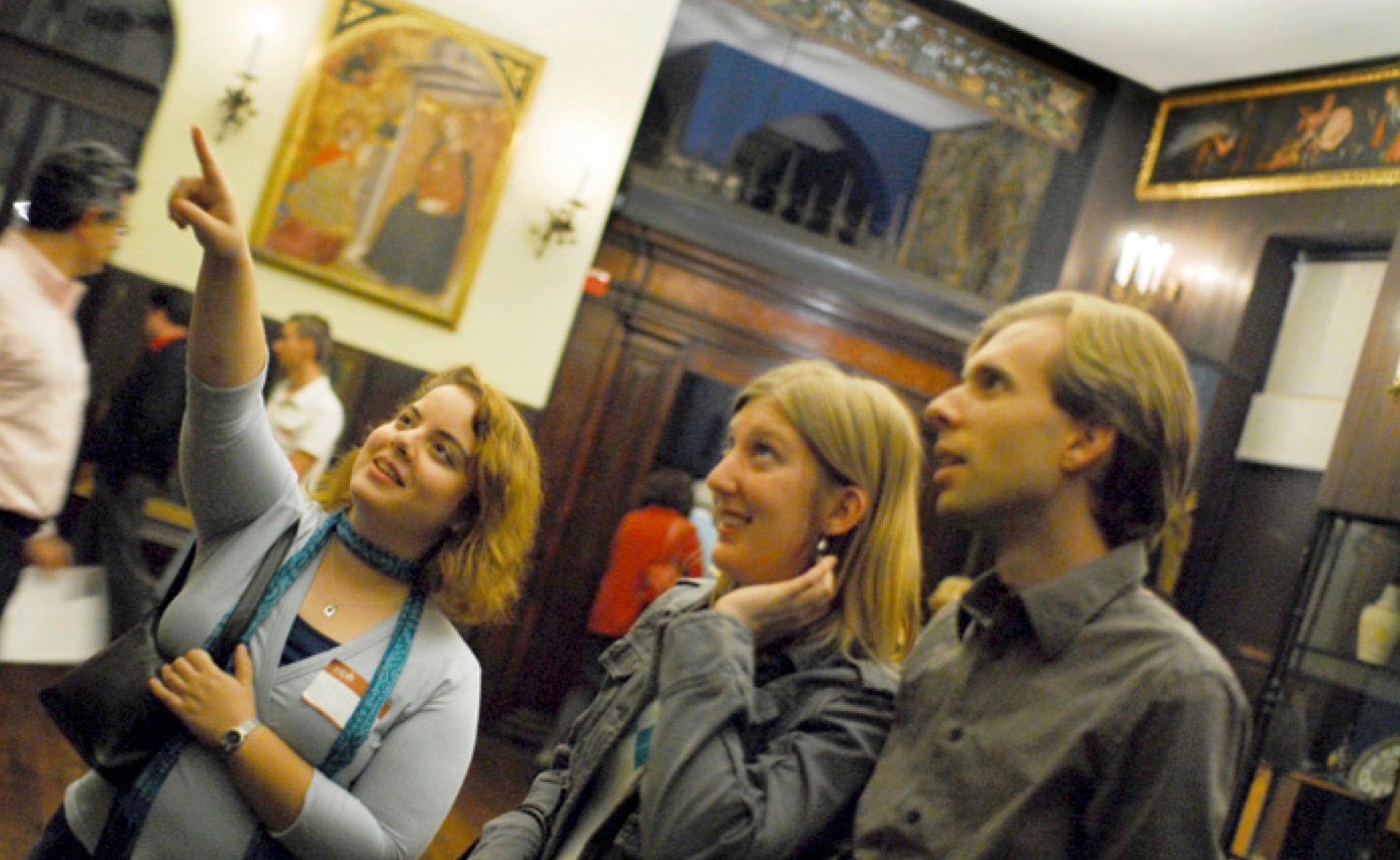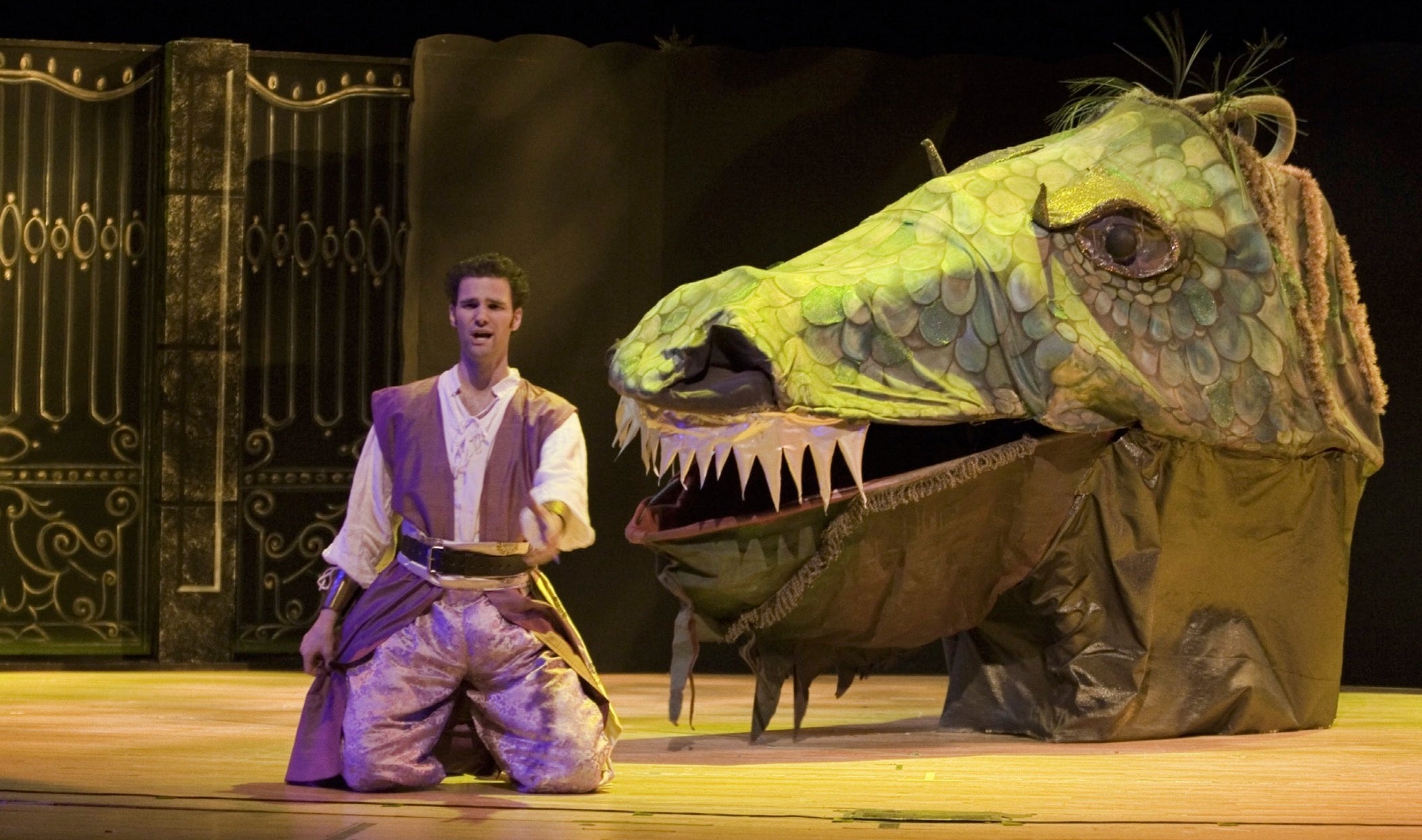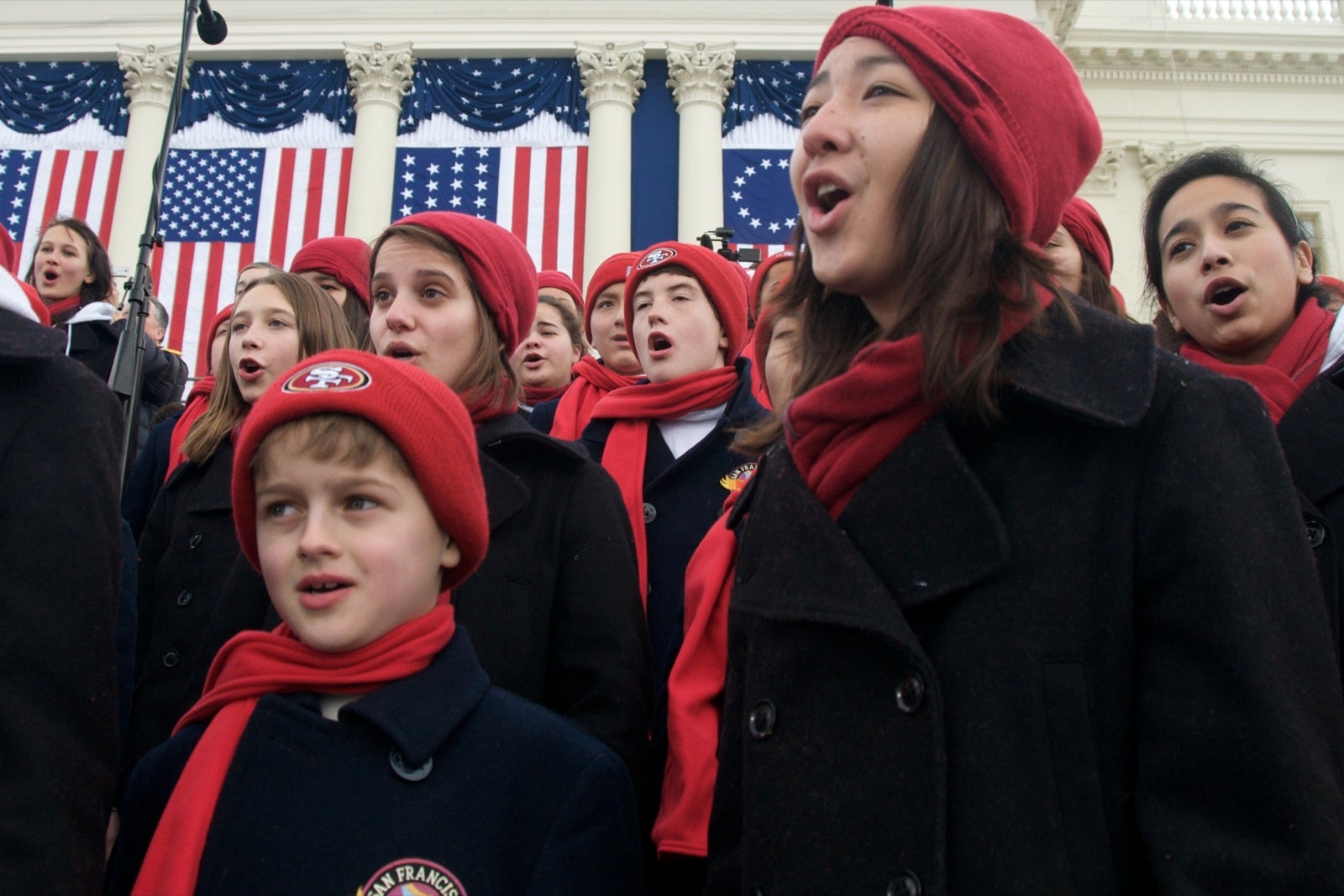Breadcrumb
- Wallace
- Reports
- Someone Who Speaks Their Languag...
Someone Who Speaks Their Language
How a Nontraditional Partner Brought New Audiences to Minnesota Opera

- Author(s)
- Bob Harlow and Cindy Cox Roman
- Publisher(s)
- Bob Harlow Research and Consulting, LLC
Summary
How we did this
This case study examines the Minnesota Opera’s efforts to expand its audience to reach women ages 35 to 60. It is the product of multiple interviews with key staff members and analysis of program elements, budgets, and planning documents.
When the Minnesota Opera set its sights on reaching a new audience segment of women ages 35 to 60, it tried an unconventional strategy: forming a partnership with a local talk-radio host. This case study explores what happened.
The article is part of a set of case studies and reports looking at the efforts of arts organizations that received Wallace Excellence Awards grants to reach new audiences and deepen relationships with current ones. The pieces examine projects at 10 of the 54 organizations that received grants between 2006 and 2014.
A 2020 follow up highlights more strategies the Minnesota Opera used to bring in people new to the art form.
Teaming Up with Plunnett
Like almost all opera companies in the U.S., the Minnesota Opera had a hard time attracting younger patrons. For that reason, it struck up an unlikely partnership with Ian Punnett, a local talk-radio host. He had a devoted following among women in the demographic the company wanted to reach. And he was an opera fan who could dispel perceptions that the art form was too elitist to appeal to his listeners.
The centerpiece of the strategy was ticket giveaways to Tuesday night performances during Plunnett’s radio show. They removed both the financial risk of making the wrong decision and the need to choose from an intimidating array of choices.
Other steps included:
- Twenty 60-second live endorsements for each opera production every season
- Prerecorded 30-second commercials on other radio shows during the week and weekend
- Plunnett’s co-hosting of Opera Insights, a free 30-minute educational talk held before each performance
- A partnership with KSTP-TV, including a ticket giveaway during a local, weekday talk and variety show and 30-second commercials
Some Success
After four seasons of the partnership, Minnesota Opera had some success: About 1,114 households new to Minnesota Opera had redeemed their free tickets to attend a performance and 18 percent had paid to come back.
At the same time, the company was unable to turn most of these newcomers into frequent patrons. Follow-up research identified factors, such as cost, that prevented visitors from making a return purchase. The company used these insights to adjust its marketing strategy to retain a number of those new attendees.
A Sudden Departure
The partnership continued through the 2013 season. But it did so without Punnett. The radio host resigned his position at the station in early 2013 because of an ongoing battle with tinnitus. That sudden departure highlights a potential pitfall of the strategy: the risk that an influential spokesperson might become unavailable.
Key Takeaways
- The Minnesota Opera formed an unlikely partnership with a local talk-radio host to reach women ages 35 to 60.
- For newcomers, ticket giveaways to Minnesota Opera removed both the financial risk of making the wrong decision and the need to choose from an intimidating array of choices.
- The company was unable to turn most of its new audience members into frequent patrons.
Materials & Downloads
What We Don't Know
- How effective were the advertising spots in raising awareness?
- What has the Minnesota Opera done to find other influencers to replace Punnett?












